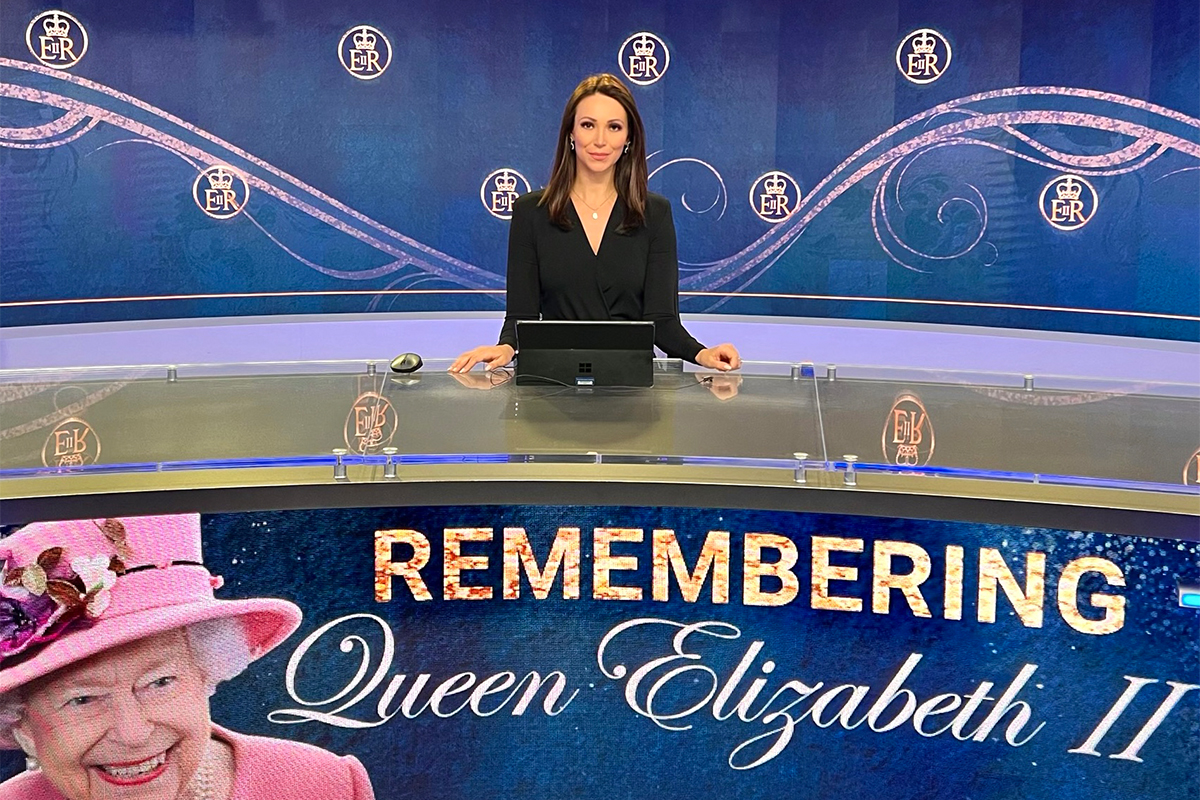When Sky News Australia anchor, journalist and author Ortenzia Borre first dipped her toes into the world of journalism, it was as an editorial assistant at a newspaper. Since then, her reputation as an accomplished news presenter for television and radio was solidified through her credentials – and most importantly, her integrity.
After completing her Bachelor of Journalism, the respected news anchor went back to university to finish her Juris Doctor – delivering her passion and expertise to audiences with confidence and truth.
“I have passed on stories and waited to broadcast reports until I believed they were represented with truth and supported by facts,” she says.
Particularly with the rise of fake news, fact-checking and presenting diverse viewpoints prevent the spread of misinformation and earn trust – one of the most valuable assets of any brand today. Verification and open-mindedness signal reliability.
“You must have a solid and reputable news brand that’s continuously evolving and adapting to be successful.”
“In my profession, an audience entrusts you to inform them with honest reporting,” Borre affirms. “Therefore, staying true to my values and moral compass are also core principles. And in downfalls, courage – alongside grit and grace – will go a long way.”
For traditional reporters and news personalities, like Borre, who has spent almost two decades at the forefront of breaking news, not much has slipped by her. And, while she says the competition to break through the over-saturated digital landscape is fierce, it’s not impossible.
“You must have a solid and reputable news brand that’s continuously evolving and adapting to be successful,” she says.
Today there are endless platforms to access news, from blogs to podcasts breaking the mould of standard traditional formats, but Borre warns, some may lack credibility.
Borre additionally adds that the prominence of artificial intelligence will have an impact on the media space.
Journalism: the lifeblood of democracy

We are living in a time where information and news can be consumed at the click of a button. There’s no doubt that through the rise of fake news, social media, digital influencers and the 24-hour news cycle that our relationship to news – as well as to the conveyors of that information – has fundamentally changed.
Have we entered into an era where anyone has the authority to be and call themselves a journalist?
According to a recent study by Pew Research Center, 31 percent of adults based in the United States turn to Facebook on a regular basis to read the news, closely followed by YouTube, Twitter and Instagram. Social media sites are the go-to destination for news items for half the population, at least sometimes.
With a multitude of sources from which to glean information, the consumer has to be more discerning than ever with whom they can place their trust. After all, journalism should help people in their decision-making and ability to make sense of the world.
While we may not think twice about all the information we consume over the course of a day, we are careful with whom we sign a business deal or employ. These decisions take into account an individual’s integrity and moral compass, the soft skills that underpin trust and good journalism.
Keeping society in check
For Borre, journalism serves an even greater role that is often overlooked – the watchdog who offers a platform for the voiceless to share their perspectives as well as shining a light in the darkest recesses of society.
“Regardless of what someone may think of the media, journalists continue to play a vital role in representing society,” she insists. “Their voice and platform have initiated law reform, reopened unsolved criminal cases and put murderers behind bars. They also hold the government accountable for their actions.”
“Regardless of what someone may think of the media, journalists continue to play a vital role in representing society.”
From corruption and human slavery within supply chains to law reform, journalists have a responsibility to provide verified information that can influence outcomes and facilitate democratic conversations. For this reason, Borre says her role is similar to a trusted friend you invite into your home.
“The media can play a significant role in shaping public opinion, therefore there’s great responsibility in delivering news truthfully and with accuracy,” she says. “Navigating a controversial story with tact is vital.”
Influencer culture and the news

For those who are familiar with social media influencers have also become acquainted with, or perhaps fascinated by, the celebrity status that is amassed through an impressive number of devoted followers. It’s a phenomenon that holds a surprising amount of power, sparking new trends while also raising ethical red flags at times.
“I come from a generation where we were taught to tell the news, not be the news, but much of the media landscape doesn’t represent this anymore,” Borre reflects.
Indeed, a recent global report published by the Reuters Institute uncovered that people are turning to influencers on TikTok (55 percent of users) and SnapChat (52 percent of users) for the news.
“I come from a generation where we were taught to tell the news, not be the news, but much of the media landscape doesn’t represent this anymore.”
In light of this, it’s news professionals like Borre who work tirelessly in perfecting their craft, that are arguably more credible as communicators rather than personalities.
“Every week I interview multiple guests,” she adds. “I regularly speak with politicians, CEOs and university professors, from topics including current affairs, global politics, international law and criminology.”
Borre is the author of two books, What Women Need: A Successful guide to looking and feeling your best and Graceful Grit: Navigating Your Way to the Best Version of ‘You’ where she argues that you can navigate corporate culture as a woman with grace and integrity.
It’s the marriage of these two forces that people crave when they learn about what’s happening in the world from someone they can trust.
“It’s vital to be kind to people. At times, you can spend more time with your colleagues than you do with your own family, therefore you have to take responsibility in ensuring you contribute to creating a healthy and productive work culture,” Borre reminds us.



